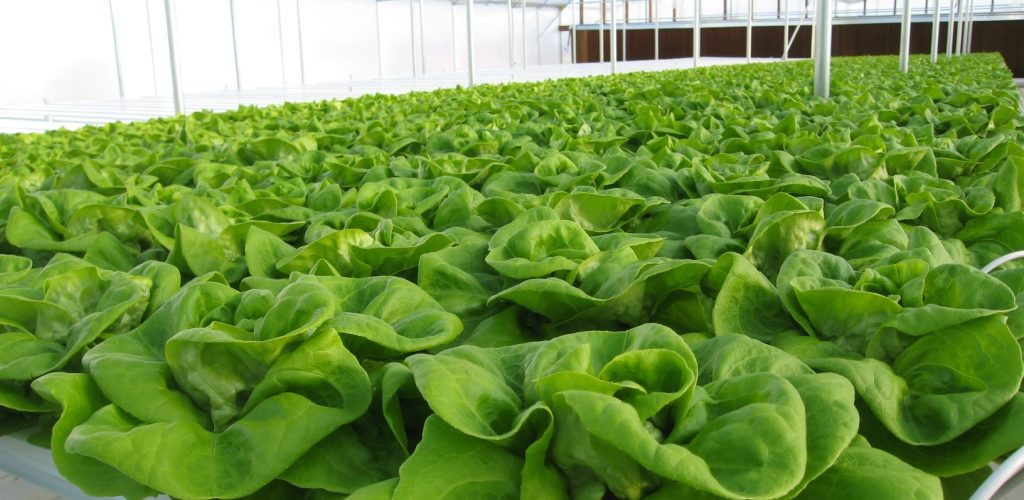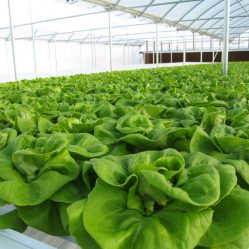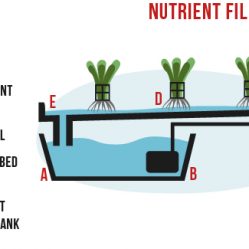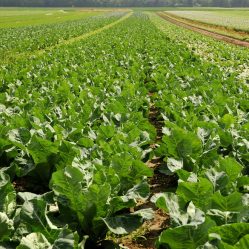As the world’s population grows, scientists and farmers are faced with the question of how to produce as much as possible in small spaces on little time. Specialists on this matter are the Dutch, one of the biggest vegetable producers in the world, despite having so little land. It is therefore not surprising that the Dutch are also specialists when it comes to hydroponics, or soil-less agriculture.
Hydroponics is a way to breed plants without soil, but using a nutrient rich liquid instead. A head of lettuce, for example, is planted in a substrate made of polystyrene, or mineral wool, to stabilize it. Its roots are then covered in a mixture of water and fertilizer, with roots either hanging in a ‘pool’ (Deep Water Culture) or in channels with nutrient rich water constantly flowing through (Nutrient Film Technique).
Dry Hydroponics – a cultivation system for industry
Dry Hydroponics is a Dutch company that specialized in the soilless cultivation of salads, herbs, and flowers. The company’s patented deep water culture system claims to give plants sufficient nutrients around the clock. Its construction makes sure plant leaves are surrounded by an encouraging micro-climate, which has an impact on the plant’s health and taste. The airy design of the system and the insulating layer between lettuce leaves and water keeps the leaves dry, hence the name. This means that certain illness, such as molds, can be prevented. What exactly a growth encouraging microclimate is, however, is not further explained. In fact, the thick, bright green leaves look almost artificial and each head of lettuce is the same. These super models can then be packaged, as they’re already clean.
Critical Voices
Dry Hydroponics claims to be sustainable: all the water used stays in a closed system, and less fertilizer is used because some does not seep into the earth. The use of the area is optimized because the space between plants can easily be rearranged, and no soil is needed. Energy, according to Dry Hydroponics, can be used efficiently, because an increase in production does not require more energy or fossil fuels.
Hydroponics is interesting for industrial companies that want to produce as efficiently and mechanically as possible. According to Dry Hydroponics, the intervention of human hands is not needed anymore. It needs to be stressed, however, that without monitoring and technology, the plants would be unable to grow. Even if there might be some advantages for soil-free agriculture, it is still a costly effort.
According to agricultural engineer Jörg Planer, the exact dosage of water and fertilizer is essential for growing success. Although costs for water and fertilizer would remain low, the technical equipment and the constant monitoring of the nutrient solution is expensive.
It should also be stressed that we understand less about nature and growth than hydroponic or genetic engineering activists claim. According to Michale Pollan, naturally grown carrots, for example, have 100 times more nutrients than hydroponic carrots. One of the reasons for this phenomenon is that we do not know all the ingredients in carrots. Fruit that does not get all the necessary nutrients because of inadequate nutrient solutions may not have all the complex ingredients, so the theory goes. For this reason, organic vegetables cannot be grown in a hydroponic way, because by law, the nutrients must come primarily from the soil.
Gabriele Sorgo, Professor in Cultural History at the University of Graz, explains: “Food interacts with the environment, and this is a very complex interaction. The best and healthiest option for people is to eat fruit that has been grown in a healthy humus, which is also alive. I don’t consider nutrient solutions as alive. This can only be an emergency solution.’
It will be seen how soil-free agriculture will proceed, efficient as it is. Whether hydroponics will become an alternative to normal plant breeding, whether the plants will be just as nutritious, and whether a fully automated system will be the future is questionable.




